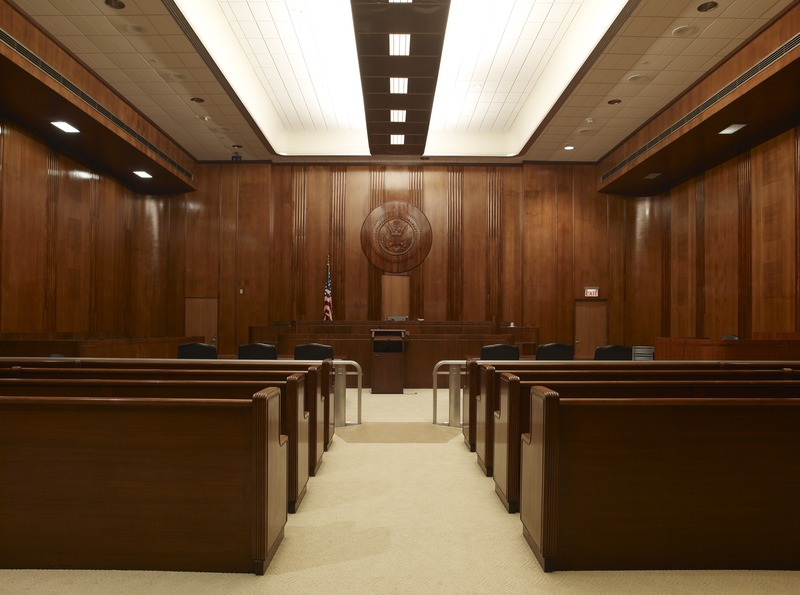A new Community Environmental Legal Defense Fund report details a standard operating procedure of how corporate interests, and the politicians who serve them, retain power.
Just like the 2008 financial crisis, the federal government is once again bailing out corporate interests while leaving local communities (and their budgets) left out to dry. State and municipal public finances have been thrown into chaos. Compounding this crisis, cities are getting sued for attempting to limit the fossil fuel industry, expand worker benefits, heighten discrimination protections, and for taking action on a slew of other issues. Examples abound – Mora County, New Mexico has been sued by a subsidiary of Royal Dutch Shell; New York City by Uber; Minneapolis by the Minnesota Chamber of Commerce; and Austin, Texas by the National Federation of Independent Business, and the Texas Attorney General. This report outlines how such corporate (and state) backlash to local activism is far from an anomaly. Rather, it is standard operating procedure.
Each community studied here faced a problem, and then took action to address that problem. Mora County banned hydrocarbon extraction. New York City regulated ride-sharing companies. Minneapolis raised the minimum wage. Austin passed a paid sick leave ordinance.
Then, corporate attorneys took their own action, against the local laws. Though some cities have the resources to defend their laws from high-powered corporate lawsuits, many do not. Just witnessing corporate backlash against city action can be enough to successfully chill local lawmaking from spreading to other municipalities.
Today, these constitutional “rights” effectively insulate corporations from powerful local lawmaking.
This chilling effect is felt regardless of the merits of the corporate lawsuit. The costs of a lawsuit itself can be enough to intimidate cash-strapped local governments.
This paradigm favors the corporation. When the U.S. Constitution began to be interpreted by the courts, corporations were among the first to win its protection. In the early 1800s, the Contracts and Commerce clauses were interpreted to shield corporations from public lawmaking. By the end of that century, they had won recognition under the Fourteenth Amendment as “persons” protected from government actions.
Today, these constitutional “rights” effectively insulate corporations from powerful local lawmaking. This means the First Amendment’s free speech protections can be used by corporations to challenge campaign finance laws that limit or abolish their spending in local elections, for example.
f corporate interests are not satisfied with their constitutional protections, their lobbyists often find it easy to add additional protections through state legislatures—to remove the power of local communities to act on particular issues. This state interference legislation is now gaining significant attention nationwide for its regressive and anti-democratic effects. With these laws, state legislatures can unilaterally outlaw local worker benefit expansions, local limits on fossil fuel extraction, and other local governing decisions.
Individuals might sue a city for police brutality or other civil rights violations. These lawsuits are necessary to protect individuals from abusive actions by their governments. This report shows how corporate legal privileges abuse this system. Their sophisticated legal strategies and constitutional protections, combined with regressive state interference laws, give corporate interests an incredibly powerful tool to repress bottom-up forms of governance. Lawsuits to enforce this system are used by corporate interests, and state actors, to intimidate, delay, and overturn municipal lawmaking in the public interest.
This report gives a list of real-life examples where these dynamics are made visible. The list is anecdotal and should not be treated as a comprehensive survey. More have popped up since this report was initiated. However, the report does show a pattern that reveals how the corporate form enjoys protection from local governance.
Furthermore, corporations often gain the assistance of state attorney generals who join corporate interests in arguing against local residents’ authority to govern corporate activity. The State of Texas, for example, banned local paid sick leave laws. When Austin and other cities passed paid sick leave, corporate interests sued, as did the Texas Attorney General.
The Community Environmental Legal Defense Fund (CELDF) is an expert in this sphere of law and partners with communities across the country in directly challenging this system.
The following examples exemplify this modus operandi of corporate repression.
Dowload the entire report from CELDF HERE.

